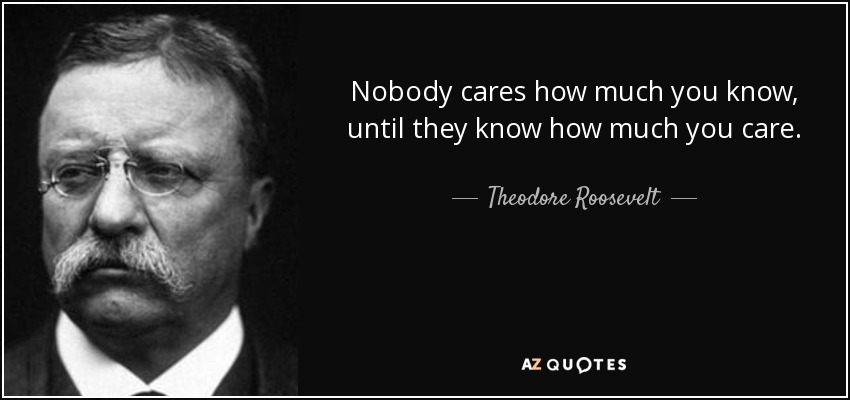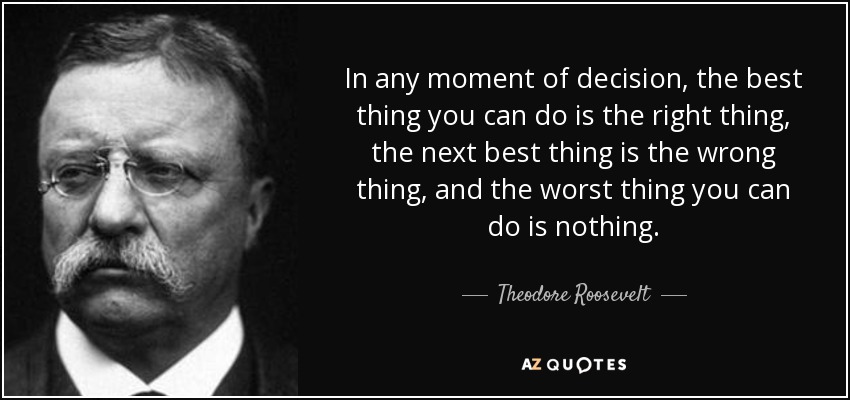Tag Archives: leadership
Don’t Make Small Talk – Make Big Talk
The Personal Development Candy Apple That Will Help You Breakthrough
Want to build generational wealth? Do this first!
A Capacity to Care
I want to make a disclaimer: This article will most likely lack the structure and finesse of my other blogs.
I originally had planned a different article this week with the same title. My goal was to do a full education/politics crossover next week with four critical traits. However, on Thursday I had a meeting that put today’s trait front and center. I am going to go with my heart and go more in-depth today than I had originally planned. I will include as many of my draft thoughts about caring as I can.

Every educator I have met that has been in the profession for an extended amount of time is caring by nature. Even for those that don’t know this first hand, it doesn’t take a great deal of research to find that almost all educators do what they do despite the financial and emotional toll that comes with the title of teacher. Those sacrifices are made with the intention of building up others every semester, every day, and every class.
The essence of education is a desire to make the world a better place and to empower others.
Ideally, anyone in a position of power should share the same goal, especially those in political power.
I spent the better part of the afternoon Thursday in a room surrounded by powerful regional entities: utility owners, ports, economic advisors, mayors, councilmembers, development directors.
I walked out of that meeting feeling frustrated, defeated, and depressed. I walked out questioning my volunteerism and optimism for the future.
Many of the conversations I witnessed at that meeting boiled people down to numbers, put profit over affordable living, and came across with a callous disconnect that broke my heart.

More than anything at this very moment, I regret not saying anything. I regret just listening and accepting the pecking order. I doubt anyone in that room would have listened to me. I doubt my speech would have been as eloquent and as well rehearsed as those I would have been opposing. Nevertheless, it would have been the right thing to do.

Others were silent as well, I would like to think that those in silence felt the same as me, but I will never know the answer.
When I sat down in front of my computer, wanting to talk about the capacity to care, of how it is reflected in everyone I meet in education, I simply couldn’t shake how I had just seen the opposite end of the spectrum.
I could have stuck with my plan and said some of these things in my closing next week. As important as the other traits I have discussed are, upon reflection, the capacity to care is the cornerstone. The vast majority of educators have open caring hearts. The vast majority of those I have met in positions of power do not. Fortunately, the problem presents a solution: have more educators active in their communities and governments.

Keys of Leadership
Today’s leaders have to be more cooperative and transparent than ever before. How many of us have lived through scandals involving leaders at all levels? How many of us have lost faith in some form of leadership–local workplace leadership and local, state, and national political leadership? I’m sure we could all make a list of leaders who have fallen short. Why do some leaders cause their people to lose faith? Why do some leaders fail?
Looking at successful leaders, it’s easy to see why they have remained trustworthy and admirable. Michelle Obama said, “When they go low, we go high.” Leaders go high without letting injustices off the hook. Dr. Martin Luther King Jr.’s famous “Letter from Birmingham Jail” went high, but he still shared his disappointment with fellow clergy and white moderates for their indifference. Interestingly enough, the second sentence of his letter reads, “Seldom do I pause to answer criticism of my work and ideas.” While this might seem like he turned a deaf ear toward critics of his vision, instead he explains that he would not have time to get the “constructive” work done if he responded to those opposed to him and his methods. He listened, but he maintained his vision and continued his work toward justice.
In education today, we have to continue to work toward what is best for our students even in the face of criticism, sometimes disguised in the form of budget cuts or other subtle acts of devaluing education. Educational leaders continue on. Classroom instructors continue on. When the noise gets too loud, we focus even more intently on our classroom and students because this is the daily work that really matters–helping students progress toward their dreams and goals.
Finally, leaders emphasize input and cooperation from a chorus of voices. It’s tough to know which words any of us say that may open up a great idea or shut down dialogue–though it’s a bit easier to figure that last one out. Being authentic and kind allows all of us to take more risks. In taking risks, we are able to achieve beyond what was thought possible.
|
|

